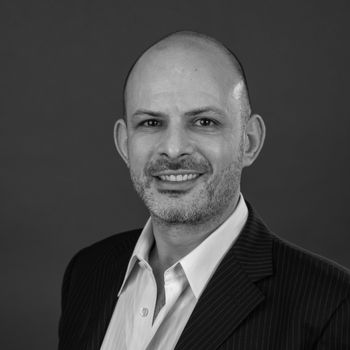PROF. GIORDANO: I found real intellectual diversity far away from elite colleges
No performative outrage, no ideological litmus tests or demands for conformity. Instead, it was what higher education used to be about: curious students engaged in thoughtful dialogue.
Nicholas Giordano is a professor of Political Science, the host of The P.A.S. Report Podcast, and a fellow at Campus Reform’s Higher Education Fellowship.
A couple of weeks ago, I was invited to participate in a roundtable discussion, at my New York college, hosted by the African American Student Union (AASU). What I witnessed wasn’t the dogmatism that we’ve come to expect in some academic circles. There was nothing staged. No performative outrage, no ideological litmus tests or demands for conformity. Instead, it was what higher education used to be about: curious students engaged in thoughtful dialogue. They were eager to listen, learn, and challenge their own assumptions.
The specific topic of our roundtable discussion focused on President Trump and his current administration. While most of the students in attendance didn’t support the current President at the ballot box, and some expressed clear reservations about some of his policies, they also displayed an honesty that is increasingly rare on college campuses – a willingness to admit what they didn’t know and an openness to consider different perspectives.
The range of issues discussed was wide-reaching. As the discussion unfolded, some students expressed concern over the Trump tariffs, but acknowledged they didn’t fully understand tariffs and the economic strategy behind them. Others focused more on immigration policies, and while some believed the President was too heavy handed, others respectfully disagreed. However, they all acknowledged the complexities of illegal immigration. Instead of defaulting to slogans or partisan talking points, these students genuinely sought to understand the broader implications of public policy decisions.
[RELATED: PROF. GIORDANO: Congress must dismantle the Department of Education]
None of the students were seeking validation or applause. They wanted to challenge their own assumptions and hear different points of view rather than retreat into their own echo chambers. Above all, they expressed hope for a successful presidency with a clear understanding that when a president fails, the entire nation suffers.
This stands in stark contrast to what we are witnessing on many university campuses. At Columbia University, anti-Israel activists distributed a vandalism guide that encourages students to use sledgehammers to “cause quite a bit of damage.” At San Francisco State University, protestors tried to disrupt a speech by the Leadership Institute’s Riley Gaines and hurled profanities and insults. At the University of Texas-Dallas, a transgender individual attacked a Turning Point USA members, including striking TPUSA chapter President Paige Neumann in the head with a bike lock. AT UCLA, anti-Israel demonstrators commandeered a building to disrupt a meeting of the school’s Board of Regents.
While this is not representative of the entire student body on our college campuses, it reveals a dangerous trend where students believe they can engage in intimidation, vandalism, and even violence, without consequence. When physical force and mob tactics replace the free exchange of ideas on our college campuses, the very purpose of higher education is called into question, and the foundations of a free society begin to erode.
One potential reason for this difference is that community college students tend to be more grounded in real life. Many of our students have to juggle work, family obligations, and their education. Some may work full-time, others may be students with young children, and we also have adults returning to the classroom for the first time in years. While elite institutions like to pretend they are diverse, many come from similar socioeconomic backgrounds and succumb to the groupthink mentality. This may explain why they engage in discourse more aligned with the original intent of higher education.
At the conclusion of the AASU roundtable, every student expressed their intent to remain open-minded and reevaluate their views as the policies are implemented and the results begin to take shape. The genuine curiosity displayed by these students gives me hope. Elite universities would be wise to cultivate similar environments. Environments that respect dialogue, differing opinions, and critical thinking. If they do that, they can begin to reclaim the vital role they once played in shaping young minds to be informed and capable citizens.
Editorials and op-eds reflect the opinion of the authors and not necessarily that of Campus Reform or the Leadership Institute.

